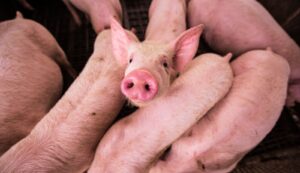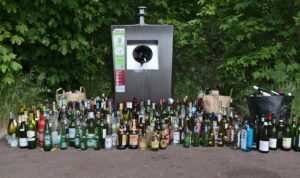How tackling food waste is good karma…
 Originally developed in Sweden, Karma is an app that helps people find cut-price food that would otherwise have gone to waste.
Originally developed in Sweden, Karma is an app that helps people find cut-price food that would otherwise have gone to waste.
The app was launched in London earlier this year and is now used by 400 restaurants, grocers and delis in the capital to prevent unused food from being sent to landfill.
Environment Journal spoke with Karma’s CEO and co-founder, Hjalmar Ståhlberg Nordegren about its remarkable success.
Where did the idea for the Karma app come from and how does it work?
Karma started out as a shopping app where consumers could get discounts for being loyal customers. During the development of the business, we saw that many restaurant and cafe owners chose to upload their surplus food as a last-minute offer to minimise the risk of having food going to waste, as well as boosting revenue. That’s when we first got introduced to the huge issue of the world’s food waste problem. This is how the idea of Karma was born – an easy-to-use and cost-effective platform where restaurants, cafes, delis, grocers, and other independent food retailers, can sell edible food that would otherwise go to waste. By making a shared platform on which customers and food providers co-exist and benefit from each other, we found an effective solution for tackling the issue of food waste.
How popular has Karma been in Sweden?
Since launch, we have in only two years, reached 350,000 users across Sweden, rescuing more than 600,000 food items from going to waste. The app has been extremely popular and consequently grown organically across towns and cities in Sweden.
It was rolled out in London earlier this year. What’s been the reaction so far?
Since launching in February 2018, more than 50,000 users and over 400 food providers in the capital have signed up to use Karma, which has exceeded our expectations. For us, this year has been a trial period. We now know that there is a huge need for an app like Karma. Due to the success during the first few months, we are now opening a London-based office in the new year to have a stronger presence in the market and be able to expand across the UK.
How much food has it prevented from going to waste?
As of today, Karma has saved more than 200 metric tonnes of food from going to waste in London and Sweden, an average of 50,000 food items a month. This is the equivalent in CO2 levels caused by food waste by 315 tonnes.
How important is it that food retailers here in the UK find ways of preventing food from going to waste?
Food waste in the UK is a critical issue, it is important we take actions in order to reduce the amount of waste we produce. According to the Food and Agriculture Organization of the United Nations, roughly one-third of the food produced in the world for human consumption every year, approximately 1.3 billion tonnes, gets lost or wasted. In the UK alone, 1,900,000 tonnes of edible food is wasted annually, which has a tremendous ripple effect. Preventing, and reducing the amount of waste will have huge environmental, economic and social benefits.
How does Karma also help reduce carbon emissions?
Food waste is one of the world’s largest environmental issues. By rescuing food, and reducing the amount of waste we produce, we also reduce CO2 emission levels caused by food going to landfill sites. To date, Karma has helped to reduce CO2 emissions by 315 metric tonnes across London and Sweden, the equivalent to 25,000 days of continuous car use.
Will Karma be rolled out in other UK cities?
Yes, with our new London-based office, we plan to expand across the UK in the New Year, and hopefully get many more towns on-board to tackle the growing issue of food waste.















